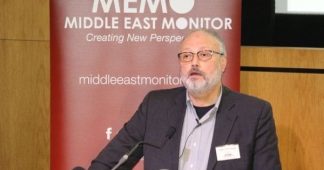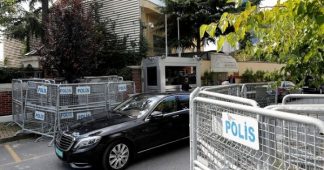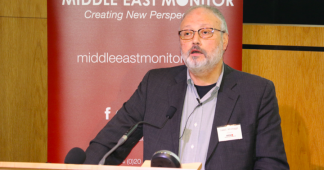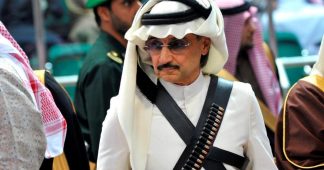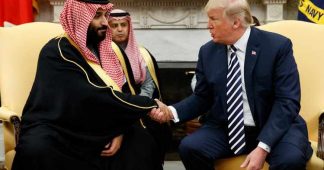Trump has threatened ‘severe punishment’ for alleged murder of journalist Jamal Khashoggi. Let’s hope he means it.
By October 15, 2018
If the reports of Jamal Khashoggi’s abduction, murder, and dismemberment at the hands of a Saudi kill team dispatched to Istanbul prove correct, his death might achieve what years of abuses by a despotic government have failed to: a meaningful rebuke by the U.S. and its Western allies.
That may have begun with a “60 Minutes” interview of President Donald Trump on Sunday. He said his administration is seeking to “get to the bottom of” the reporter’s disappearance, and if it turns out the reports of Khashoggi’s murder are correct, there would be “severe punishment” for the Kingdom. The comments came as the Saudi stock market continued to plunge on Sunday.
Despite its alleged complicity in the 9/11 attacks, a long history of supporting radical Islamist groups, one of the world’s worst human rights records, and the prosecution of a savage war in Yemen, Saudi Arabia—up until now—has largely escaped censure by both Republicans and Democrats in Washington.
In fact, politicians from both parties have implausibly lauded Saudi Arabia as one of Washington’s most important allies. However, the Trump administration appeared to have taken this obsequious approach to the House of Saud to a new level. He and his son-in-law, Jared Kushner, have lavished praise on Saudi Crown Prince Muhammad bin Salman, often referred to as MbS. In his speech to the United Nations in September, Trump singled out the Saudi king and crown prince citing their “bold new reforms.” The president has hardly been alone. For much of the last three years, the crown prince has been able to count on a devoted fan club that includes prominent columnists, philanthropists, and titans of industry.
By contrast, Khashoggi, a onetime insider who advised ranking princes of the House of Saud, is a prominent and well-informed critic of MbS and his policies. Khashoggi has rubuked the Saudi-led war in Yemen and its push to launch an unprovoked invasion of Qatar. However, despite his criticism, Khashoggi remained a stalwart Saudi nationalist whose columns for The Washington Post often emphasized his interest in saving Saudi Arabia from itself or rather from its capricious young leader.
Turkish authorities have presented some evidence that the suspected 15 member kill team may have included men who are part of MbS’s close protection squad. There are also reports that U.S. intelligence services intercepted communications that indicate the “young reformer” approved plans to lure Khashoggi back to Saudi Arabia. While this may all come as something of a surprise to the members of the bin Salman fan club, it shouldn’t.
This is the same man who rounded up several hundred Saudi businessmen, princes of the House of Saud, and members of the Saudi Armed forces and confined them to the Ritz Carlton Hotel in Riyadh where they were held until they agreed to sign confessions and most importantly hand over billions of dollars in assets. The crackdown was praised by the Trump administration. At least one of those detained, Major General Ali al-Qahtani, appears to have been tortured to death.
MbS is also the architect of Saudi Arabia’s brutal and futile war in Yemen. The war was meant to mark bin Salman’s international and national debut. Now in its fourth year, the war in Yemen costs Saudi Arabia billions of dollars a month and has shown the world that its military—even with the most advanced weaponry and U.S. assistance—is incapable of even defending the country’s own borders from lightly armed Houthi rebels and allied militias.
The Saudi air force, with U.S. assistance in the form aerial refueling, has targeted civilian infrastructure, farmland, factories, and, most recently, a bus load of Yemeni children. After the bus bombing, which killed 40 young boys, MbS was reported to have said in a meeting with military brass, “we want to leave a big impact on the consciousness of Yemeni generations. We want their children, women, and even their men to shiver whenever the name of Saudi Arabia is mentioned.”
MbS didn’t have to worry about criticism from the U.S. much less a review of American assistance to the Saudi military. Following a pattern of permissiveness, the Trump administration turned a blind eye to Saudi abuses in Yemen and encouraged the Saudis to—yet again—investigate themselves. Secretary of State Mike Pompeo went on to certify to Congress that Saudi Arabia and its partner in the war in Yemen, the United Arab Emirates, were taking all necessary measures to avoid civilian casualties. Bipartisan measures to end U.S. assistance there have so far failed to get full approval in Congress, though a new resolution by Rep. Ro Khanna (D-PA) was introduced in September.
Congress has started to act where Khashoggi is concerned, too. Members of the Senate Foreign Relations Committee have sent a letter to the White House triggering an investigation into Khashoggi’s disappearance and possible murder under the Global Magnitsky Human Rights Accountability Act. Senator Rand Paul, a longstanding and consistent critic of the House of Saud, is introducing a measure to cut all funding, training, and advising to the Saudi military. In a tweet, Senator Paul said, “the Saudis will keep killing civilians and journalists as long as we keep arming and assisting them. The President should immediately halt arms sales and military support to Saudi Arabia.”
Until this weekend, President Trump’s was taking heat for suggesting his primary concern was keeping U.S. arms sales to the Kingdom intact. In an interview with Fox News Night on October 10, when asked about possibly blocking arms sales to Saudi Arabia over Khashoggi, the president responded, “I think that would be hurting us.” However, as Bruce Riedel points out in a recent article, the arms sales that Trump lauds are “fake news,” because the war in Yemen is draining the Saudi coffers, and they have stopped buying.
If the president does not follow through on his threats (if an when it turns out Saudi Arabia is connected to the journalist’s disappearance and/or death) it will have wide-ranging implications for U.S. credibility and most critically further imperil dissidents and journalists around the world.
So far, savaging Yemen, a country of 26 million, a deplorable human rights record at home, and ties to radical Islamists have done nothing to dampen the Trump administration’s and previous administrations’ enthusiasm for the House of Saud. One can only hope that what looks to be the brutal pre-meditated murder of Jamal Khashoggi, a U.S. resident, might finally provoke something other than praise for Saudi Arabia and its de-facto ruler.
* Michael Horton is a foreign policy analyst who has written for numerous publications including Intelligence Review, West Point CTC Sentinel, The Economist, The National Interest, and The Christian Science Monitor.

